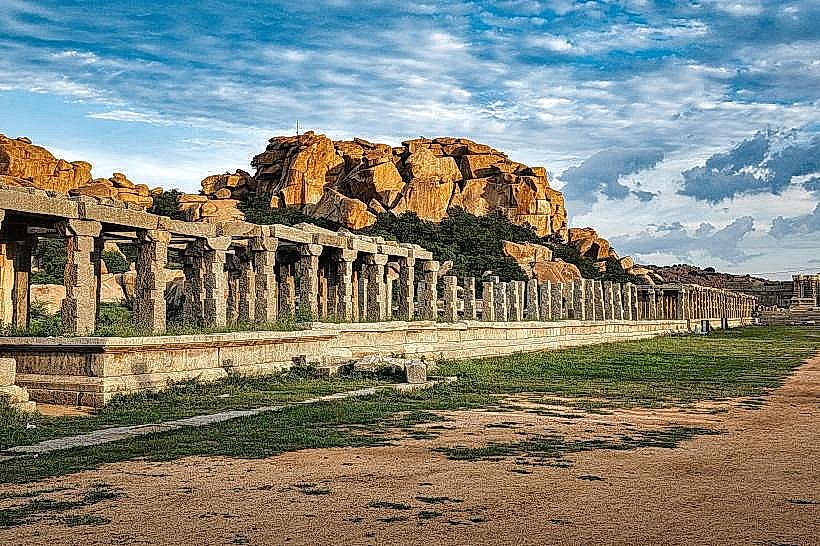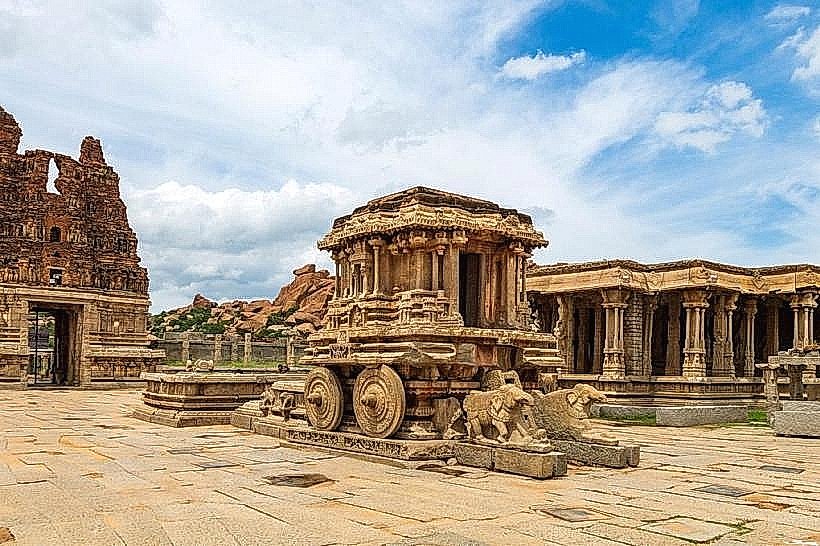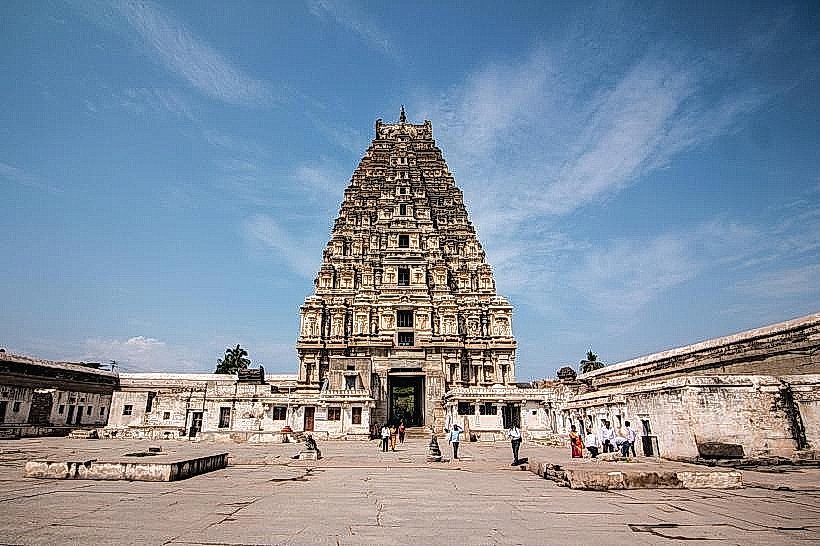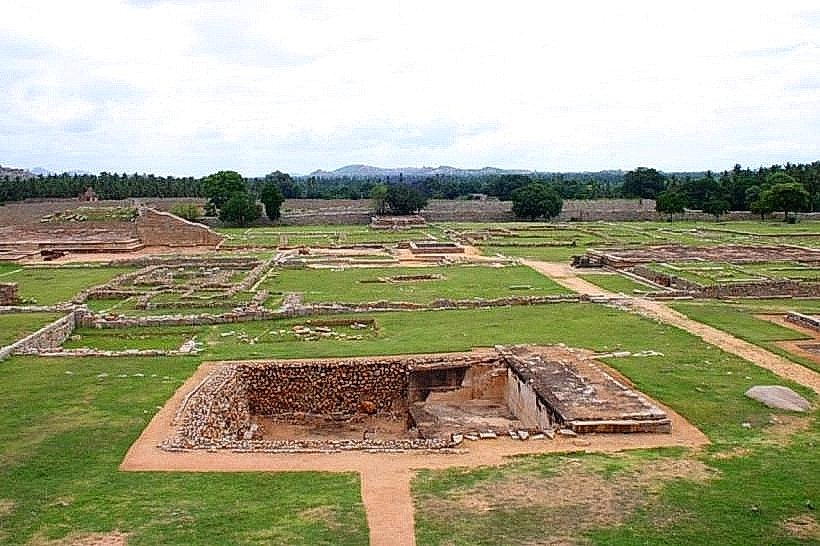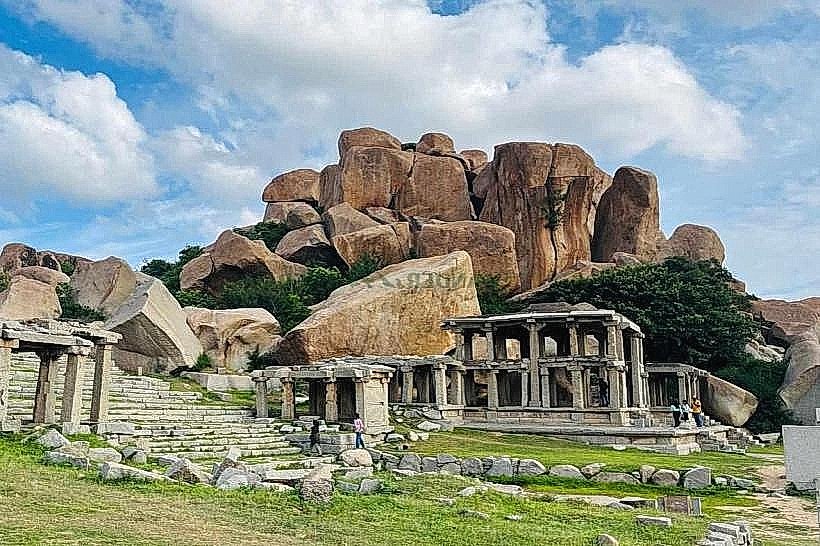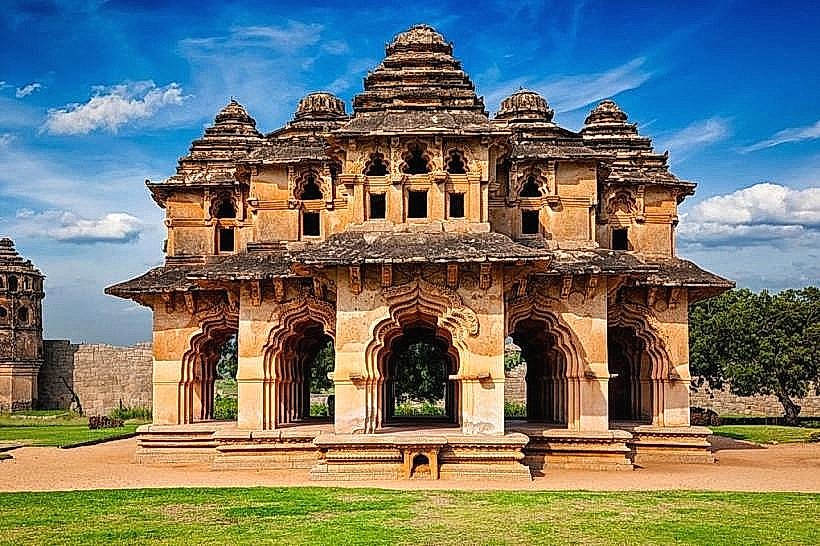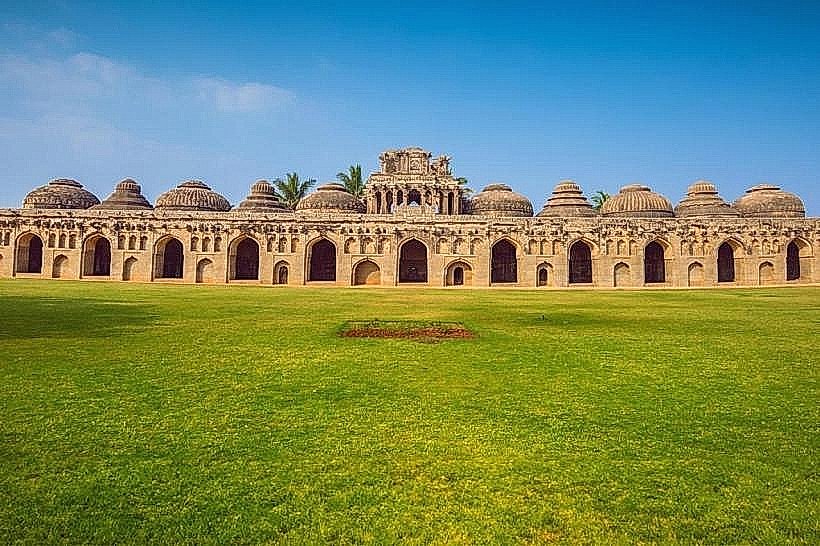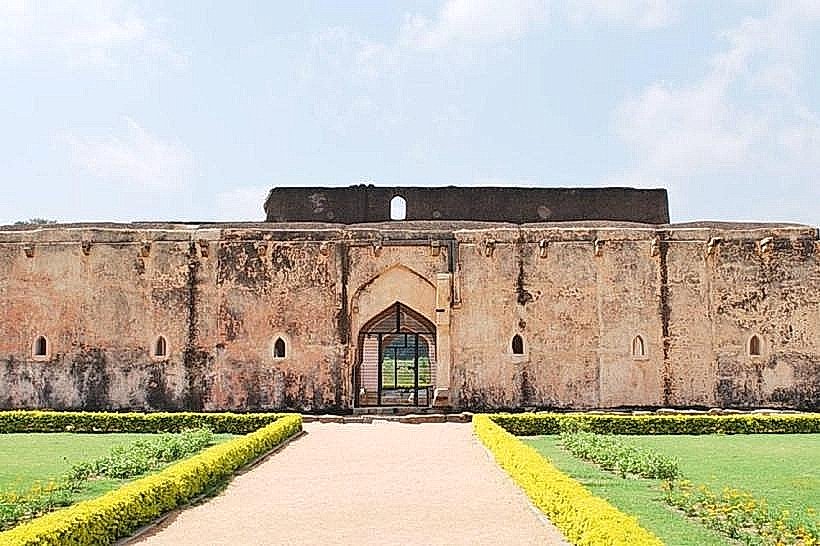Information
Landmark: Hemakuta Hill TemplesCity: Hampi
Country: India
Continent: Asia
Hemakuta Hill Temples, Hampi, India, Asia
Jag Mandir is a palace located on an island in Lake Pichola in Udaipur, Rajasthan, India.
Visual Characteristics
The palace complex is constructed primarily from sandstone and marble. It features a series of courtyards, pavilions, and gardens. The architecture incorporates Rajput and Mughal design elements, including arches, domes, and intricate carvings. The main structure is a multi-storied building with a central courtyard. The exterior is predominantly light-colored stone, contrasting with the blue waters of the lake.
Location & Access Logistics
Jag Mandir is situated on Jag Mandir Island in Lake Pichola. Access is exclusively by boat. Boat services depart from the City Palace jetty and the Ambrai Ghat. The journey across the lake takes approximately 10-15 minutes. There is no direct road access to the island. Parking is available at the City Palace complex and near Ambrai Ghat.
Historical & Ecological Origin
Construction of Jag Mandir began in 1551 under Maharana Udai Singh II and was completed by his successor Maharana Jagat Singh I in 1651. It was originally intended as a pleasure palace and a summer resort. The island itself is a natural formation within Lake Pichola.
Key Highlights & Activities
Visitors can explore the palace grounds, including the Gul Mahal, the Darbar Hall, and the Zenana. Boat tours of Lake Pichola typically include a stop at Jag Mandir. Photography of the palace architecture and lake views is a common activity. The gardens offer areas for walking.
Infrastructure & Amenities
The palace complex includes a restaurant and a cafe. Restrooms are available for visitors. Limited shaded areas are present within the courtyards and pavilions. Cell phone signal (4G) is generally available on the island.
Best Time to Visit
The best time of day for photography is generally during the morning hours (9:00 AM to 11:00 AM) or late afternoon (4:00 PM to 6:00 PM) to avoid harsh sunlight and capture softer light on the architecture. The most favorable months for visiting are from October to March, when the weather is cooler and drier. There are no specific tide requirements for access.
Facts & Legends
During the 1857 rebellion, the British refugees were sheltered at Jag Mandir by Maharana Swarup Singh. The palace is also known as Lake Garden Palace.
Nearby Landmarks
- City Palace, Udaipur (0.5km West)
- Lake Pichola (0.1km surrounding)
- Bagore Ki Haveli (0.7km West)
- Jagdish Temple (0.8km West)
- Gangaur Ghat (0.7km West)

